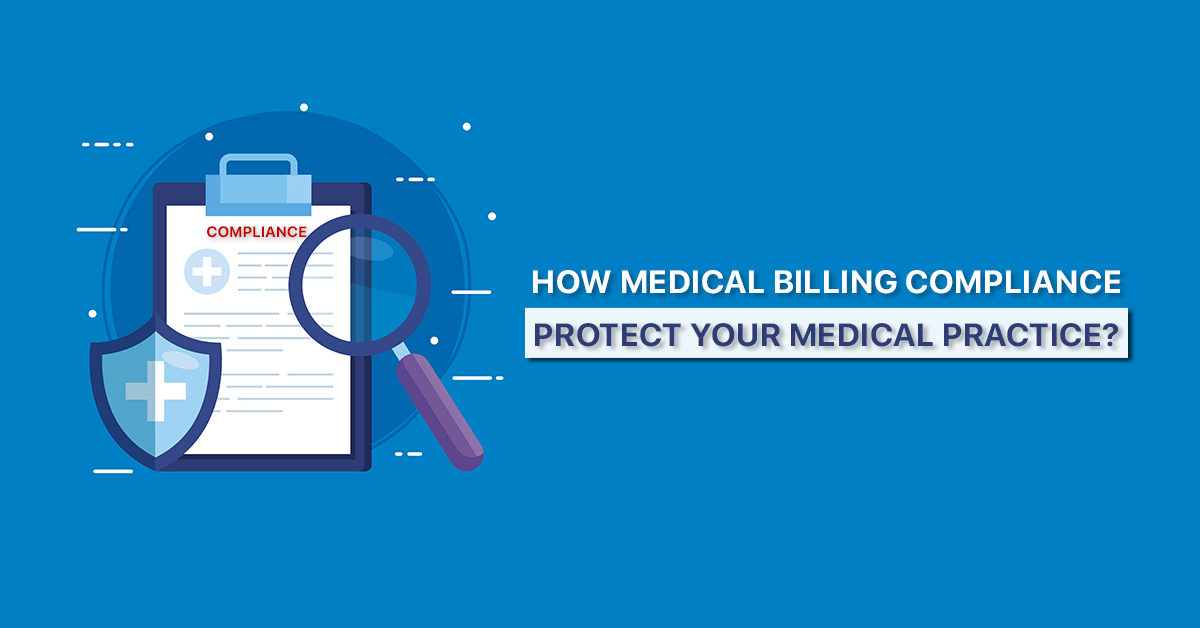The process of medical billing encompasses multiple stages, starting with patient registration and eligibility verification, followed by capturing charges, coding, submitting claims, and posting payments. When a patient receives medical services from a healthcare provider, the provider documents the services and associated costs within an electronic health record (EHR) system. Subsequently, a medical billing entity assigns standardized codes to the services before initiating claim submission to insurance firms on behalf of the healthcare provider. Once the insurance companies handle these claims, the medical billing company post payments, manages claim denials and appeals.
Benefits of Compliance in Medical Billing
Helps To Mitigate Financial Risk
Failure to comply with regulations can result in bureaucratic obstacles from insurers, compliance audits, or even litigation in severe cases. The fines and penalties for non-compliance can be significant. In the event of fraud, for instance, medical facilities could lose their ability to work with insurers, resulting in substantial financial losses.
Ensures Safe & Quality Service
The regulations for compliance in medical billing are intended to safeguard patients’ safety and maintain the highest standards of healthcare. These requirements are regularly revised to incorporate the latest diagnostic and treatment advancements. If a medical practice fails to comply, it may lag behind new standards, rendering itself outdated.
Therefore, healthcare providers must ensure that their staff is well-trained and up-to-date with the latest regulations to prevent poor service quality and other related consequences.
Compliance and Ethical Issues
In addition to legal consequences, compliance also has an ethical dimension for medical facilities. Billing fraud not only defrauds insurance companies but also results in unfair pricing for other patients, reflecting unethical and immoral practices. Compliance regulations prioritize billing and medical coding transparency and help reduce the risks of fraud, misconduct, and ethical concerns.
Prevents Legal Complications
Failure to comply with regulations can result in lawsuits, and litigation can be costly. Insurance companies have the legal right to pursue violations by healthcare providers, medical technicians, and claims submission companies. These lengthy legal proceedings can involve substantial legal fees that can financially drain a medical facility, leading to staff reductions, business closures, or even worse outcomes. Compliance regulations are intended to reduce the likelihood of malpractice claims, mitigating the risk of legal complications in the future.
Maximize Revenue Generation
Compliance in medical billing has a positive impact on healthcare providers’ revenue generation. When the billing process complies with laws and regulations, the chances of errors and denied claims decrease, resulting in maximized revenue. Ensuring compliance and providing adequate training to all staff involved can prevent common billing errors.
Mistakes such as incorrect billing codes or untimely submissions can lead to numerous denied claims. Medical practices should prioritize compliance to avoid such denials, respond effectively to legitimate denials, identify new revenue opportunities, and optimize reimbursement.
The medical billing process comprises several steps, such as patient registration, eligibility verification, charge capture, coding, claim submission, and payment posting. Compliance with healthcare regulations is crucial in medical billing. Technological advancements are revolutionizing the medical billing industry, resulting in more precise and efficient billing processes. As healthcare continues to evolve, the medical billing industry will continue to play a crucial role in the success of healthcare practices.

